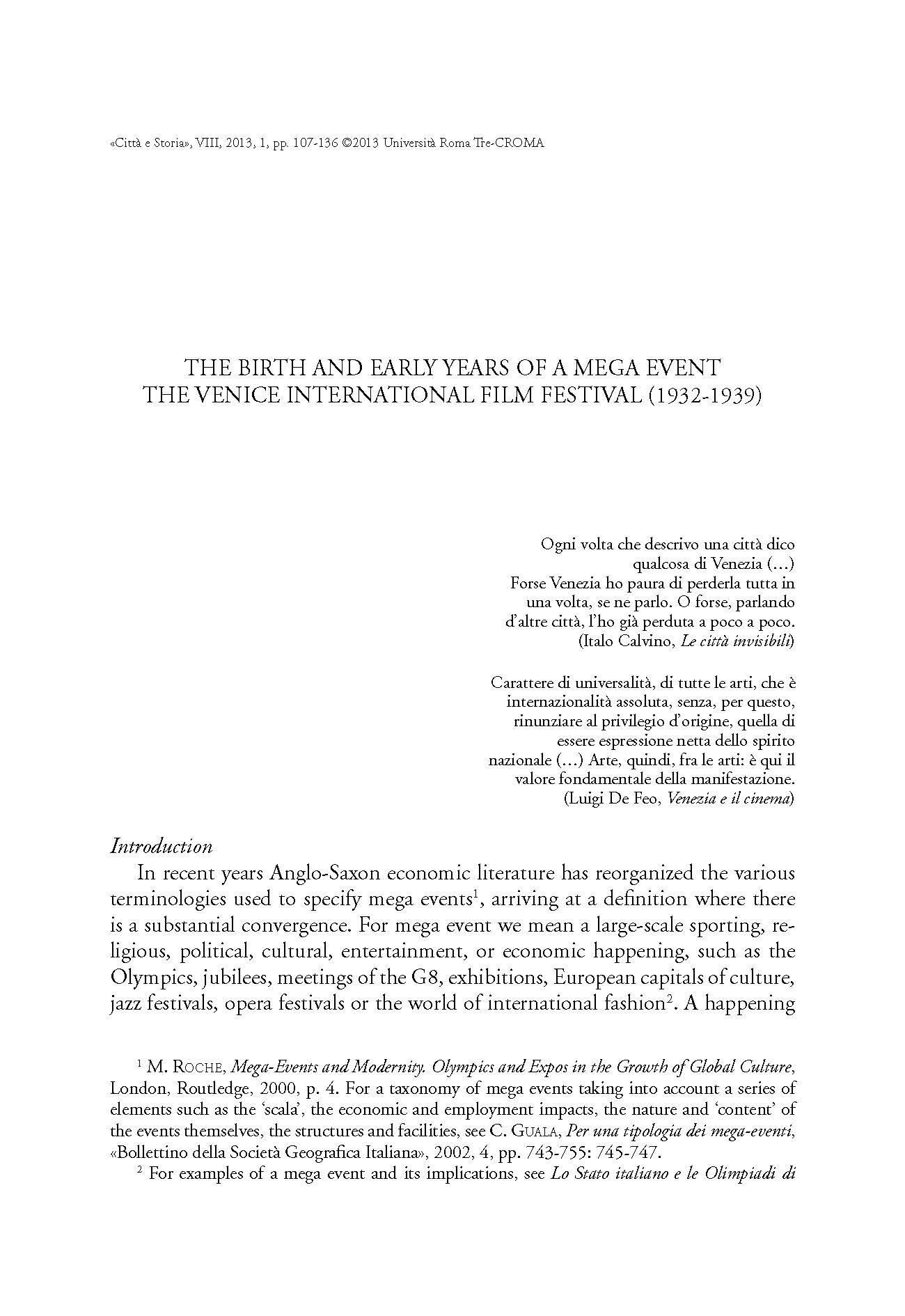The Birth and Eearly Years of a Mega Event: The Venice International Film Festival, 1932-1939
6,00 €
In the light of recent advances in the literature of economics – mostly Anglo Saxon – about great events, this study intends to analyze the origins and first editionsof the Venice International Film Festival, until the eve of the Second World War. We focus on the cultural, politic and economic requirements that gave rise to the Festival; the actors involved (from Giuseppe Volpi di Misurata, one of the leading exponents of financial-industrial capital and of the Italian institutional world, to Luciano De Feo, the so-called “hierarch of celluloid”); the role of local, central and supranational authorities; the convergence of public and private interests; the decision-making process; and, finally, the reasons, not only economic, for the Festival’s success. The Venice Festival confirms, in fact, what economic historiography concerning the great event has already shown, namely the importance of political components: in this case, we need only think of the propagandistic aims concerning Italy’s “international reputation” so tenaciously pursued by the Fascist regime. Key words: Mega Event, Venice International Film Festival, Fascism, Economic Impact, Urban Development, Relaunching of the Tourist Industry.
In the light of recent advances in the literature of economics – mostly Anglo Saxon – about great events, this study intends to analyze the origins and first editionsof the Venice International Film Festival, until the eve of the Second World War. We focus on the cultural, politic and economic requirements that gave rise to the Festival; the actors involved (from Giuseppe Volpi di Misurata, one of the leading exponents of financial-industrial capital and of the Italian institutional world, to Luciano De Feo, the so-called “hierarch of celluloid”); the role of local, central and supranational authorities; the convergence of public and private interests; the decision-making process; and, finally, the reasons, not only economic, for the Festival’s success. The Venice Festival confirms, in fact, what economic historiography concerning the great event has already shown, namely the importance of political components: in this case, we need only think of the propagandistic aims concerning Italy’s “international reputation” so tenaciously pursued by the Fascist regime. Key words: Mega Event, Venice International Film Festival, Fascism, Economic Impact, Urban Development, Relaunching of the Tourist Industry.

